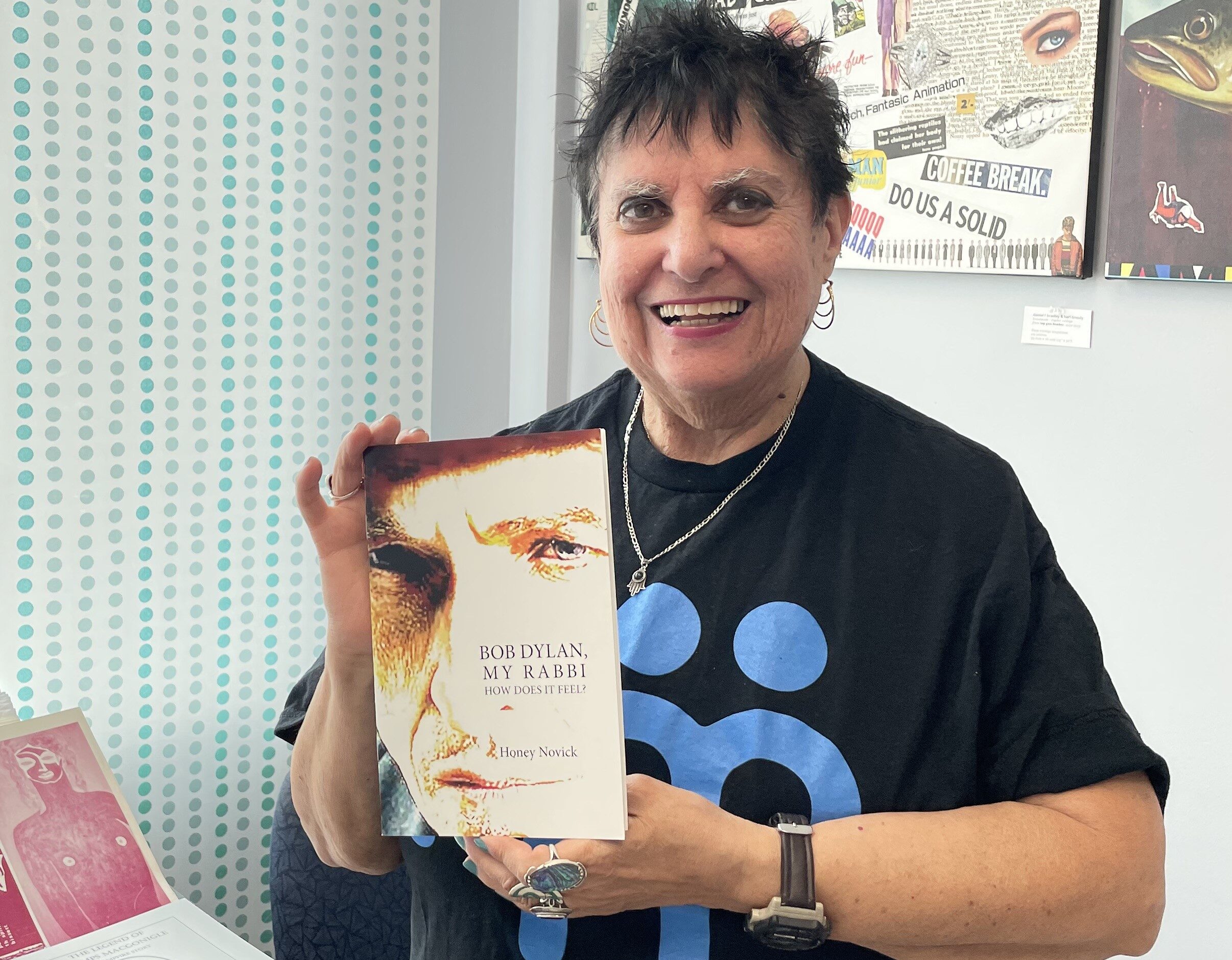Honey Novick was 16 or 17 years old the first time someone asked her how she felt. It turned out that simple question would change her life.
“Nobody ever asked me that before. I come from a traditional family where girls had expectations and were expected to fulfill those expectations. And they just didn’t suit me at all. So when I heard this, I started to question my own self. How do I feel about this or that?” she said.
“At the time, I was still in high school… I just couldn’t see an academic route for me. I couldn’t see me getting married. I couldn’t see anything other than despair.”
Novick, who is a singer, songwriter, and poet, was first asked how she felt not by a family member, or a friend, not even by a rabbi—at least, not an officially ordained one. She was first asked the question by Bob Dylan. His song “Like a Rolling Stone” was blaring over the loudspeakers in a crowded place. Dylan’s unusual, alluring voice was addressing everyone who was present, but Novick felt singled out.
“All my life, I was told what to feel, how to feel, what to expect, etc. When I thought, felt and acted differently, I was admonished, scolded for being rebellious. Bob wouldn’t leave it alone,” Novick writes in her introduction to her newest collection of poetry. “I was gone, engaged, committed to explore all the implications of this question.”
Novick, who was born and raised in Toronto to two Israeli parents, couldn’t see herself fitting into the stereotypical mold for Toronto women at the time–the girls with their frilly, lacy dresses; the women needing their husbands’ signatures to obtain credit cards. She is now 74, but she still recalls that moment nearly sixty years ago as a crucial inflection point in her life because it awakened her passion and perspective.
Her latest poetry collection is titled Bob Dylan, My Rabbi, because she believes Dylan functioned as a spiritual guide for her journey of self-discovery.
“Eventually, I started questioning myself, and eventually, I started performing and writing and doing all kinds of interesting things, and I started to answer my own questions. The poetry that I collected for Bob Dylan, My Rabbi, is the result of having asked those questions.”
Since that fateful day, Novick has gone on forge her own path in Canada’s alternative arts scene. She has been invited to perform at tributes to Canadian Jewish greats such as Irving Layton and Leonard Cohen. The National Gallery of Canada has even purchased her entire catalogue, which includes one LP, three CDs, and eight books of poetry.
She got her start with the famous Canadian artist collective General Idea; she has worked as a folk singer and scat singer and performed as a soloist for the Toronto Jewish Folk Choir and Beth David Synagogue. She has even performed at the Carnegie Recital Hall and been written up in the New York Times. And as Novick sees it, it was Dylan’s clarion call that first opened her eyes to her artistic potential.
Novick published Bob Dylan, My Rabbi, through The Secret Handshake, an organization by and for people with schizophrenia founded in 2004 to address the void in treatment after diagnosis.
One of the founders of The Secret Handshake, Bill Bissett, is a close collaborator of Novick’s who encouraged her to take herself seriously as a poet when she was in her 40s. (He is also a prolific Canadian artist and poet in his own right: no less than Jack Kerouac called him one of the great poets way back in 1968).
Novick herself has not been diagnosed with schizophrenia, but she is deeply involved with the organization–whether it’s leading a session of voice yoga, contributing to the programming, or just hanging around for a chat with the other members.
Her own road to artistry was anything but straight and narrow. But she has never forgotten who first placed her at the beginning of her path, the strange voice beseeching her, for the first time, to look inside herself for answers.
